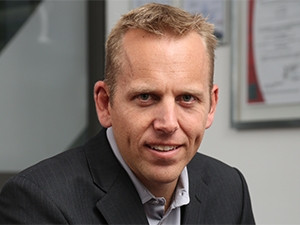
With all the network capacity and spectrum challenges and introduction of 4G services, Nokia Networks believes a number of opportunities have opened up in the mobile broadband space where operators need to rethink their traditional strategies in SA.
Nokia divested its handset business to Microsoft in early 2014. The company is focusing on three businesses including HERE. Upon closing of the HERE transaction, Nokia will consist of two businesses, Nokia Networks and Nokia Technologies. German carmakers BMW, Audi and Mercedes have won US antitrust approval to buy Nokia's maps business for around 2.5 billion euros ($2.8 billion), the Federal Trade Commission said this week.
In a recent interview with ITWeb, Deon Geyser, head of Southern Africa and Vodafone Market Unit at Nokia Networks, said the advent of Internet of things (IOT) and over-the-top players attacking traditional voice services emphasises the need for enhanced data services to further grow data revenues.
He explained this is driving larger investments in the mobile broadband space, and opening doors for voice over LTE and voice over WiFi services. At the same time, real mobile broadband penetration in SA is still low compared to other more developed markets, he pointed out.
"We also see a trend where operators are paying attention to customer experience management, and are looking for solutions for managing customer experience in real-time," said Geyser.
"With the existing network challenges and operational issues, operators are also seeking reliable infrastructure vendors with professional services that can plan, deploy, operate and optimise 2G, 3G, and 4G technologies cost-efficiently with highest global standards. All of these are opening up new opportunities for Nokia Networks."
According to Geyser, the major challenges faced by operators in SA are the scarcity of spectrum, demand for increased network capacity, and significantly improved customer experience. In addition to these is the challenge of achieving the aforementioned cost-effectively, he added.
"Spectrum and network capacity go hand in hand. More spectrum would allow operators to deploy more capacity more efficiently, while still launching new services on 4G LTE network. At the same time, we have seen increased competition between major operators has resulted in lower tariffs, which require more capacity to carry the additional voice minutes, data MBs or even SMSs."
And at the same time, Geyser noted shareholders expect at least the same or better returns. Over and above all these, he said, SA has a unique consumer market with a variety of rural and urban challenges, and each of these requires a specific focus by operators in order to improve the customer experience, reduce churn and retain subscribers on their networks.
"Recently, we have seen a significant increase in load shedding and also automation strategies being implemented in a number of labour-intense industries. And as we are moving into a more intelligent environment, and more intelligent power control, coupled with tracking intelligence requirements, we really believe the IOT market will increase significantly in the South African market, as all these processes and entities need to be monitored, controlled and tracked in real time remotely."
Share